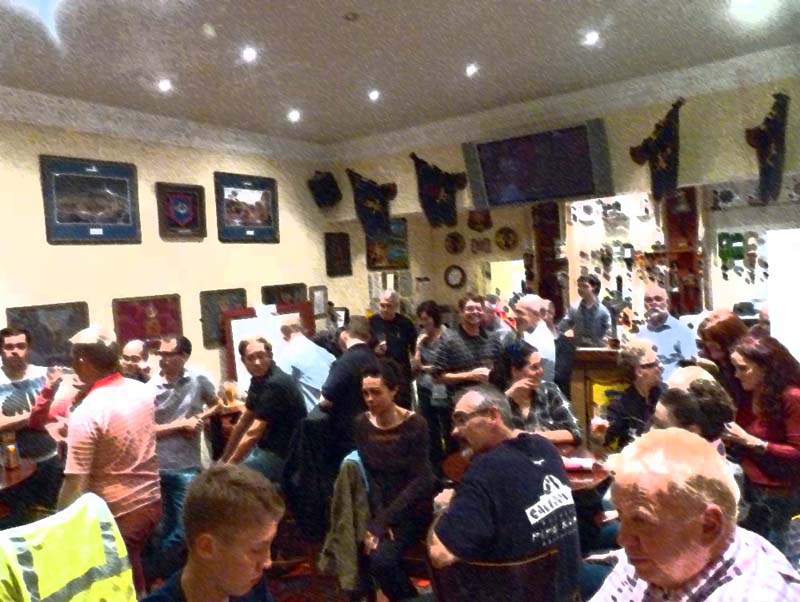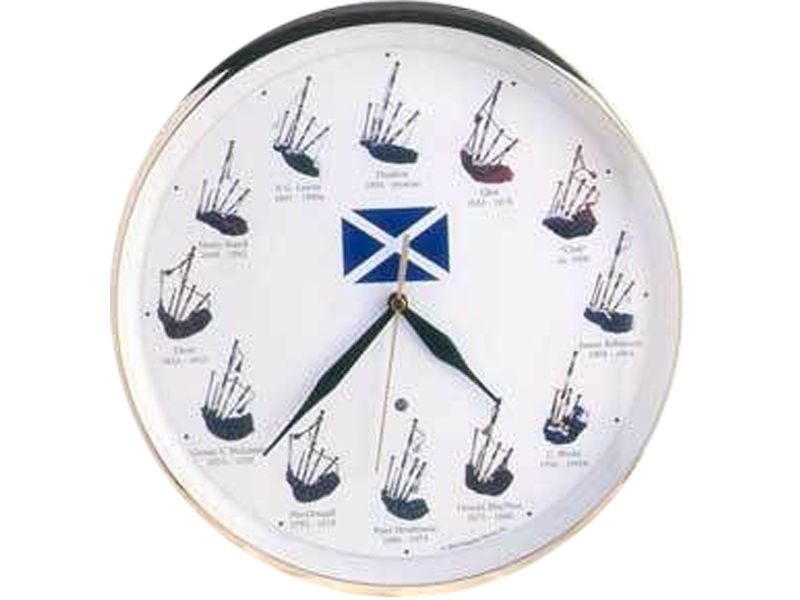Opinion: Associations that go beyond competition can further the art and keep members involved

We wrote a few years ago about the annual attrition of competing pipers and drummers, and how many associations do little if anything to retain those who love piping and drumming but become fed up with the anxiety, expense and time required to compete.
Our thoughts in 2023 were mostly around older players who quietly drift away, often never seen again. With an aging population, the competition scene, with few exceptions, is increasingly a younger person’s game.
Most associations leave it to bands to recruit and teach new players. Associations rely on their members to replace departed members. At best, it’s a break-even total membership stasis. With relatively fewer bands, there’s less teaching, and with less teaching, there are fewer members, resulting in fewer bands, and so on. Some associations have finally realized that they need to take teaching into their own hands if they’re to survive. Some, if not most, are still woefully behind.
Traditionally, there are piping and drumming associations and clubs/societies. Associations are for competition; clubs and societies for unjudged performance. Each shares the common bonds of music, camaraderie, and, presumably, fun. (There are some exceptions, but let’s just use these terms for simplicity.)
The last element—fun—seems to erode from the competing experience. When competing is no longer fun, most pipers and drummers move on.
The last element—fun—seems to erode from the competing experience. When competing is no longer fun, most pipers and drummers move on.
Most associations seem to think their only function is to organize piping and drumming competitions. With few exceptions, that’s all they do.
Associations subsist on memberships and competition entry fees—the more competitions they can stage, the more revenues they can generate to—you guessed it—hold more competitions.
Competitions are supposedly catalysts for quality. We indoctrinate pipers and drummers with the notion that competition is simply what good pipers and drummers do. The sooner we can get novices into competitions, the sooner they can become hooked on winning, and once they have that bug, they’re in it for life . . . or until they become so worn down by the constant criticism and futile (but strangely addictive) pursuit of perfection that they walk away.
Meanwhile, consider the small clubs and societies that exist and are gaining popularity: the Pittsburgh Piobaireachd Club, the Piobaireachd Society, the Royal Scottish Pipers’ Society, the Eagle Pipers Society, the NB Piobaireachd Club, the Saint Florian Pipers Society . . . the list is long.
Some of these organizations host an annual competition, but with everything they do, their mandate is to further the art.
But, wait, isn’t that the core objective of the competition-running associations? Why, yes, it is! This is where the competition-running associations and piping and drumming clubs overlap.
While competition associations watch as the majority of their members lose interest in competition and all the anxiety, expense, and politics that accompany it, they do little if anything to stem the annual flow of members leaving. It’s just what happens.
And that’s where competition-running organizations are missing the obvious. They could and should create space for those not or no longer interested in competing—those who comprise the vast majority of pipers and drummers.
Competition associations should either get together with clubs and societies or start their own non-competing membership branch.
Competition associations should either get together with clubs and societies or start their own non-competing membership branch.
If associations are supposed to promote music, why do they confine themselves to competition? Not only is it demonstrably limiting, but many would argue that incessant competition does little or nothing to promote the art. Our type of competition stifles creativity because of the strictures, rules and traditions that competitors must adhere to and judges habitually reward.
If associations created a non-competing category for members and organized events and programs similar to those run by other non-competing clubs and societies, not only would they better fulfill their mandate of furthering the art, but they’d expand their membership. They could provide a place for those not interested in having their music judged every weekend but still want to learn, listen, and perform without the withering anxiety and pressure of trying to be impossibly perfect.
Associations embracing non-competition performance and teaching would require a different type of organizing and, inevitably, more volunteers to look after this new membership segment. But clearly, non-competition clubs and societies can attract volunteers, so it’s possible. Former competitors might want to further the art without the ceaseless need to be judged.
If we ran an association, we’d create monthly sessions where criticism and competition are forbidden. All members can attend, and non-members pay, say, $10 to enjoy a stress-free environment of musical education, enlightenment, and appreciation.
Associations are under increasing pressure to provide more value to their members beyond staging yet another competition where yet more fees are required. They can add value by creating non-judgmental, stress-free performance environments of learning, fellowship, and fun.
Perhaps it’s too radical an idea for associations that depend on entry fees and countless events for every level and type of piper and drummer. Maybe anything but the pursuit of perfection and judging the art is unacceptable.
But “furthering the art” needs to be more than a cliché. Associations can fulfill their number-one mandate and secure their future by embracing and retaining non-competing pipers and drummers as members through performance, teaching, camaraderie and stress-free fun.
pipes|drums is independent of any third-party association, organization or business. Unless noted, articles do not speak for any other organization or person. The only things we sell are advertising and subscriptions, and all proceeds from those sources are invested in the publication and nonprofit or charitable causes that are also for the good of piping and drumming. We believe in the fundamental tenet of free and fair speech. Without exception, every article, video or other piece aims to contribute positively to piping and drumming and foster constructive dialogue. We welcome disagreement, and without exception, we invite our readers to offer their fair comments. Any opinions expressed are those of the publication or contributing authors.



I can’t agree more with your article. My “local” Association does a great job on supporting competitions and getting the players to perform their best at the local and international Highland Games, but does little to support the “Performance Bands”. I wrote an article for this publication “one piper’s 30-year journey back to enjoying pipe bands” on February 29, 2020 highlighting how I came back to piping after a career playing in a Grade One band.
There is a local gathering in Vancouver on April 26th – North of 60 – where players over 60 can play anything they want for up to 6 minutes and will not be judged – just for fun. I’m looking forward to seeing old friends who will dust off their pipes and play some old tunes that they like. There are too many sets of pipes sitting idle, when they could be played (see my article noted above…). Players have skills that are shelved when they could be enjoying themselves both socially and playing in a band. The Associations that do not grasp this fact will have less and less players to “administer” in the decades come if they do not recognize that there is more to life than going to Glasgow Green every August.
Love this ‘North of 60’ idea. I’m a couple of years and a ferry ride away from being able to participate, but the concept is brilliant. Perhaps the Vancouver Island Pipers Club could consider a similar event once a year.
One thing I don’t understand is why you chose to criticize the associations instead of aiming the article at the people who are leaving. You have some good ideas.
Why not run a series on the people who are leaving the hobby to find out what’s going on. Are they leaving because the reasons you gave? Do they want to continue playing? Give them a voice. Start that discussion. You could interview some of the members of the great clubs you mentioned. Write some articles about getting a club started. One with the help of your local association and one where a group of players does it on their own. What about doing a piece on things you can do if you don’t want to compete anymore but still want to be involved in piping. You should aim to educate and empower players. That brings change. I would be over the moon if members showed up to the local AGM and proposed starting a club like the one you talked about.
Thanks for reading. The discussion is interesting and constructive, which is the whole idea. No negative criticism or divisiveness was intended. If that was the tone, chalk it up to poor writing. Capturing the right tone, as we musicians know, is tricky. What’s shrill and sharp to some is just fine to others.
Aside from prompting constructive discussion, it was an observation that piping/drumming/pipe band associations organize competitions. That’s what they do. That’s what they’ve always done. But there’s significant membership attrition every year. So, there’s a way to retain those people.
Perhaps start with “exit interviews.” Do associations follow up with lapsed members to understand why they haven’t renewed or quit? Or do they simply shrug and chalk it up to the way things go? Maybe they don’t even notice.
Or, if an association member is the equivalent of a retail business’s loyal customer, trying to get them back with different or new product offerings would make more sense than simply giving up. Retaining a customer is far easier than acquiring one, after all. You’re no longer interested in our products? What can we do to get you back? You’re weary of competition pressure? Hmm. Maybe we can look at non-competition performance, or teaching, or recitals . . . Just the act of asking them and showing your concern goes a very long way.
My professional work experience taught me that the most successful businesses foster a culture of creativity. A culture in which management summarily craps on new ideas because they’re too busy is doomed to fail. Of course, people are busy; that’s a sign of a good manager.
However, a good manager also encourages new ideas by recognizing that they don’t have to happen immediately. Further, the idea doesn’t have to be delivered by the person who came up with the idea. Often, employees don’t speak up with their ideas or suggestions for fear of having to execute them – why? Because the culture is geared that way. GREAT IDEA! Now, go, you go do it.
The best managers instead say, GREAT IDEA! Let’s talk about how this can work. What resources are needed? Do we need to involve more people? Hire more? Let’s develop a plan that’s fair and reasonable.
Show me a “careful what you wish for” culture, and I’ll show you a doomed business. They’re stagnant, and eventually, their one-product, one-dimensional company fizzles because they realize too late that no one wants their product anymore.
In my experience volunteering for associations, I learned that more members than are often assumed actually **want** to become involved. But when they hear constant stories from leaders who complain nonstop about how onerous, political, thankless, and awful it is, it’s hardly a calling card. Ironically, the association leaders who often complain the most are the ones who stay the longest.
Volunteering for an association or club that supports your passion can be one of life’s most rewarding experiences. It’s no different from working with a business that makes or does things that mesh with your values and love. You’re not only there for the money; you’re also there because you’re making a positive contribution. That’s the bigger reward.
However, that only occurs if the club, association, or business has a culture that welcomes and appreciates new, innovative ideas and converts problems into opportunities. They want to know how they can be better by understanding how to retain good customers and employees.
Thanks again for reading and consuming the food for thought.
Thanks for your reply. I enjoyed it. I would love to see exit interviews or surveys done to hear what people’s reasons for leaving are. I think the people who genuinely love it stick with it. They find their way back. I always have. I enjoy learning new tunes, taking lessons, and going to compete. I think people should be more honest with themselves and move to do what brings them joy. Maybe that’s what the people leaving are doing. I would be interested to see how many people are in clubs and actively compete.